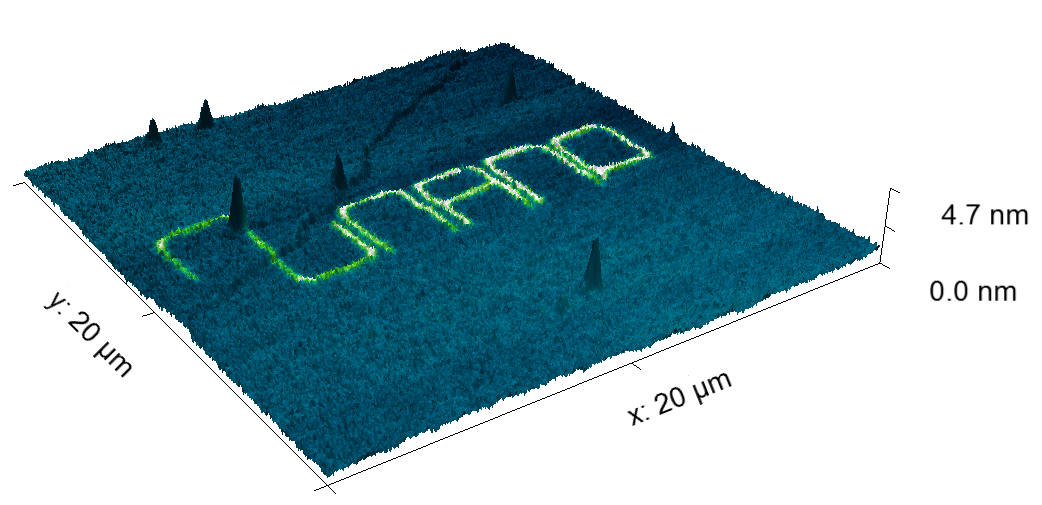NuNano, a spin-off company from Bristol University, specialises in the design and manufacture of probes for atomic force microscopy and cantilever-based sensor devices. It is the only UK manufacturer of atomic force microscope (AFM) probes and has unique expertise in manufacturing sharp and durable silicon AFM probes. NuNano approached NPL to measure the thickness of metallic layers on the probes and check their suitability for electrical measurements. This was a challenging and important problem as the shape of the probe’s tip leads to a non-uniform thickness at the apex, non-linear degradation and biased electrical performance.
NuNano were awarded InnovateUK funding through the Analysis for Innovators scheme to work with NPL to improve characterisation of metallic coated AFM probes for nanoscale electrical characterisation. These probes were a new product that NuNano were about to launch.
NPL performed chemical and thickness analysis of thin films and probes fabricated by NuNano, including cross sections of coated probes using focused ion milling and scanning electron microscopy. The analysis revealed that the deposition of the materials on the probes was not always uniform in thickness or adhesion. NuNano used this information to adjust their deposition system, which in turn reduced wastage in the manufacturing process.

Measuring the electrical performance was an even more challenging problem. There were no agreed methods or standards for calibrating conductive AFM probes for electrical measurements, and each laboratory used a different approach. The most commonly used electrical mode is called Kelvin-probe force microscopy (KPFM), which measures the contact potential difference between the probe and the sample. NPL created a calibration protocol that involved several reference samples, application of voltage to the samples and annealing in a vacuum. By consolidating many good practices, NPL developed an appropriate method for NuNano as well as a protocol to compare the performance of several different probes.
This project has resulted in NuNano being able to optimise their manufacturing processes for AFM probes and reduce wastage. It has also helped them to develop and launch a product that was far superior than their original plans. At the successful closure of the project the protocol and its outcome have been published in the Journal of Physics Communications to benefit a wider audience.
NuNano and NPL have continued to work together via NPL’s Measurement for Recovery programme and crucially this research is being continued through NPL’s participation in VAMAS inter-lab comparisons of Kelvin-probe force microscopy (KPFM) calibration.
Charles Clifford, the lead scientist sums up the work: “It’s very pleasing to be able to use NPLs expertise in AFM and nanoscale measurement and characterisation in order to support and help NuNano as the only UK AFM probe manufacturer.”
Héctor Corte, a higher research scientist at NPL, explained: “When there isn’t a standard to provide guidance on how to perform a measurement, it is always difficult to be sure if the outcome of a measurement will provide a useful result. The fact that both Charles and I work on standardisation of nanotechnology, and good communication with the company, helped navigate this problem and obtain a solution that helped the company.”
Working with NPL via the Analysis4Innovators programme has enabled us to access external expertise and equipment that just isn’t usually feasible for a small business. The project has enabled us improve our products and processes, and we are now seeing these products being used by the AFM community worldwide
James Vicary, Managing Director & Co-founder - NuNano
Find out more about NuNano's work.